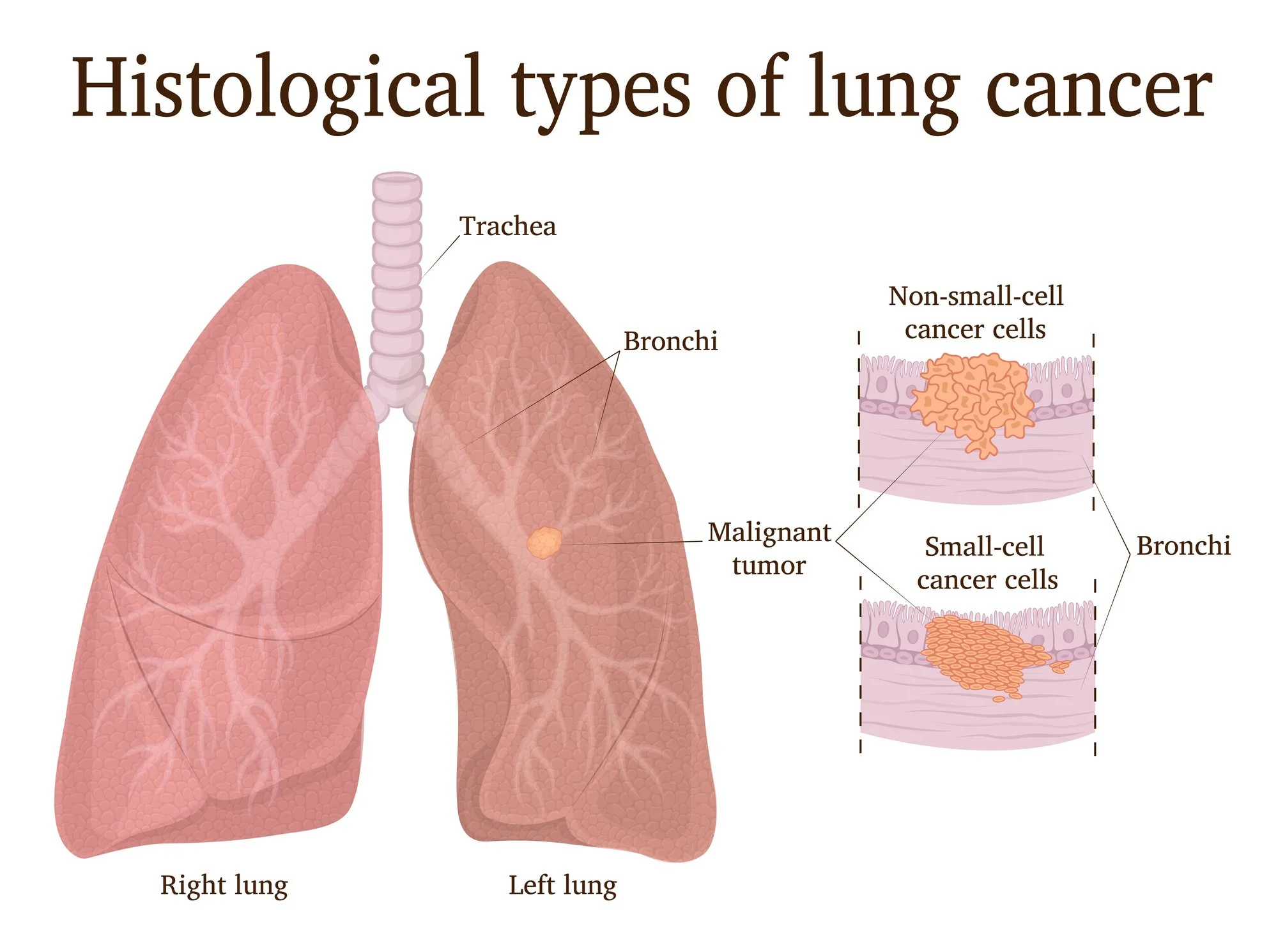Wildfire Smoke and Lung Cancer—What You Should Know
As wildfires become more frequent and severe across the United States, the short-term risks are clear—evacuations, property damage, and poor air quality. But there’s growing evidence of a more hidden, long-term threat—an increased risk of lung cancer linked to wildfire smoke exposure.
Cizzle Bio is empowering patients and physicians with a highly accurate, cost-effective blood test for early lung cancer detection. Our CIZ1B biomarker blood test detects lung cancer at an early stage, before it has spread to other parts of the body, and when treatment is most effective. This test is especially important for people at increased risk, including those living in wildfire-prone areas and firefighters who are frequently exposed to harmful smoke.
The Link Between Wildfire Smoke and Lung Cancer
Wildfire smoke is a complex and toxic mixture. It contains fine particulate matter (PM2.5), volatile organic compounds (VOCs) and carcinogens such as polycyclic aromatic hydrocarbons (PAHs), benzene, formaldehyde, and heavy metals. When inhaled, these substances can reach deep into the lungs and enter the bloodstream, causing inflammation, DNA damage, and oxidative stress—factors proven to play a role in cancer development.
Recent research published in academic research journals and government agencies has strengthened the link between wildfire smoke and respiratory health risks:
A 2022 study in The Lancet Planetary Health found that long-term exposure to wildfire smoke was associated with a 10% to 30% increase in lung cancer rates among populations living near high-burn areas in the western United States.
A U.S. county-level study published in the April 2025 International Journal of Health Geographics showed that counties in the western United States exposed to high wildfire frequency saw elevated lung cancer mortality 13-23 years later.
Animal studies conducted by the U.S. Environmental Protection Agency (EPA) and other research centers have shown that repeated exposure to wildfire smoke can lead to genotoxic effects and precancerous changes in lung tissue.
While research continues, the trend is clear—chronic exposure to wildfire smoke is not just an air quality issue, it’s a serious health hazard with cancer-related risks.
Firefighters Face Even Greater Risk
Firefighters are another high-risk group. The International Agency for Research on Cancer (IARC), part of the World Health Organization, recently classified occupational exposure in firefighting as carcinogenic to humans, citing “sufficient evidence” for an increased risk of lung cancer. Firefighters experience acute and repeated exposure to dense smoke and combustion byproducts—even with protective gear. Over time, these exposures can accumulate, increasing their risk of long-term health effects, including cancer. Organizations such as the International Association of Firefighters and the HunterSeven Foundation are actively studying the health impacts on firefighters, but the need for early detection tools is urgent.
The Power of Early Detection with CIZ1B
Symptoms of lung cancer usually don’t appear until the disease is in an advanced stage and has spread to other parts of the body—when treatment options are limited and outcomes are poor. However, when lung cancer is caught early, the picture changes dramatically. According to the American Lung Association, five-year survival rates for Stage I lung cancer, which has not spread to other parts of the body, are 63%. That number drops to only 8% in Stages III and IV, when cancer has spread beyond the lungs.
Cizzle Bio is closing this gap with our CIZ1B biomarker blood test—a groundbreaking early detection tool for lung cancer. This minimally invasive blood test uses less than a tablespoon of blood and makes screening more accessible, especially for people in high-risk groups, such as:
Residents of wildfire-affected areas
Firefighters and emergency responders
Individuals with prolonged exposure to air pollution
Know the Signs of Lung Cancer
If you live in an area affected by frequent wildfires—or have a career in firefighting—you may benefit from talking to your healthcare provider about lung cancer screening options. You should also be alert to these possible lung cancer warning signs:
A persistent cough or coughing up blood
Shortness of breath or wheezing
Unexplained weight loss or fatigue
Frequent respiratory infections like bronchitis or pneumonia
Understanding the importance of recognizing these early symptoms is critical—especially because lung cancer often goes unnoticed until it’s advanced. Learn how early detection significantly improves survival outcomes in our detailed article.
Take Charge of Your Lung Health
If you live near wildfire-prone areas, monitor air quality reports during smoke events, and consider using an N95 mask when outdoors. And stay proactive about your health—especially when it comes to cancer.
At Cizzle Bio, we know that early detection saves lives—and the CIZ1B blood test could be the key to finding lung cancer early, when treatment is most effective.
To learn more about the CIZ1B test coming soon to U.S. clinical environments, please visit: www.cizzlebio.com






